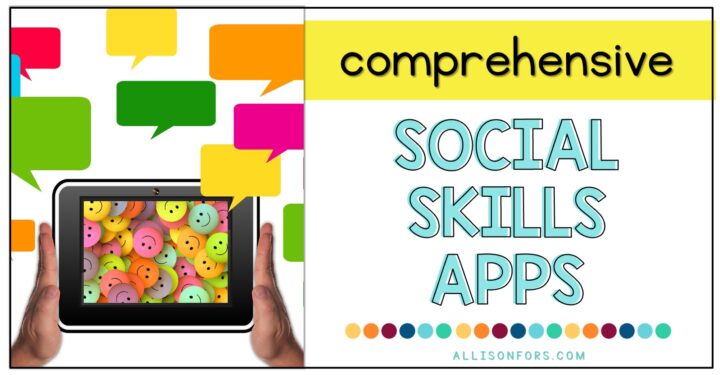
The Difference Between Social Skills and Pragmatics
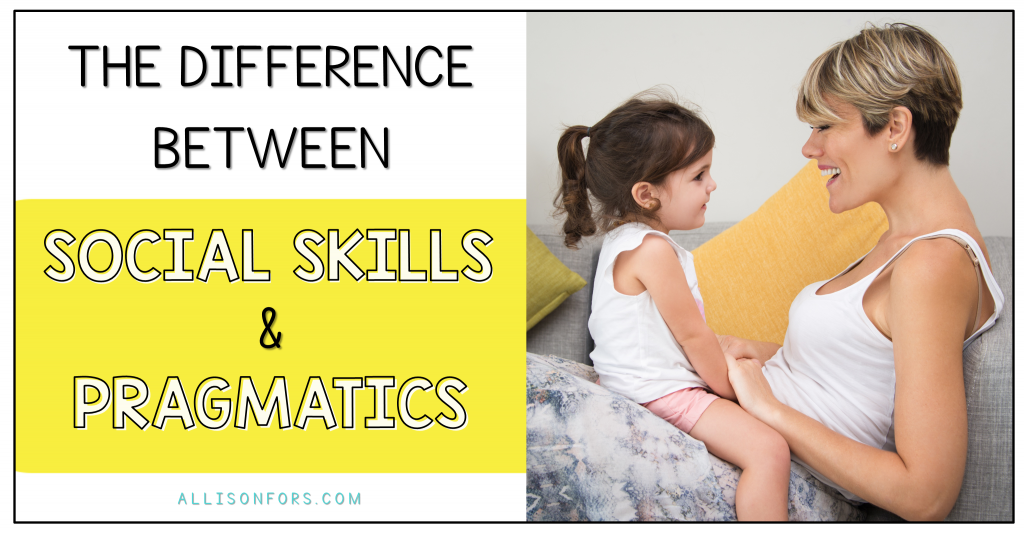
You have no doubt heard and used the terms “social skills” and “pragmatics”, but what is the difference between the two? Most people use these terms interchangeably, but they don’t have the exact same definition! Pragmatics is one component of social communication skills, alongside social interaction, social cognition, and language processing as shown in my infographic below and as outlined by ASHA.
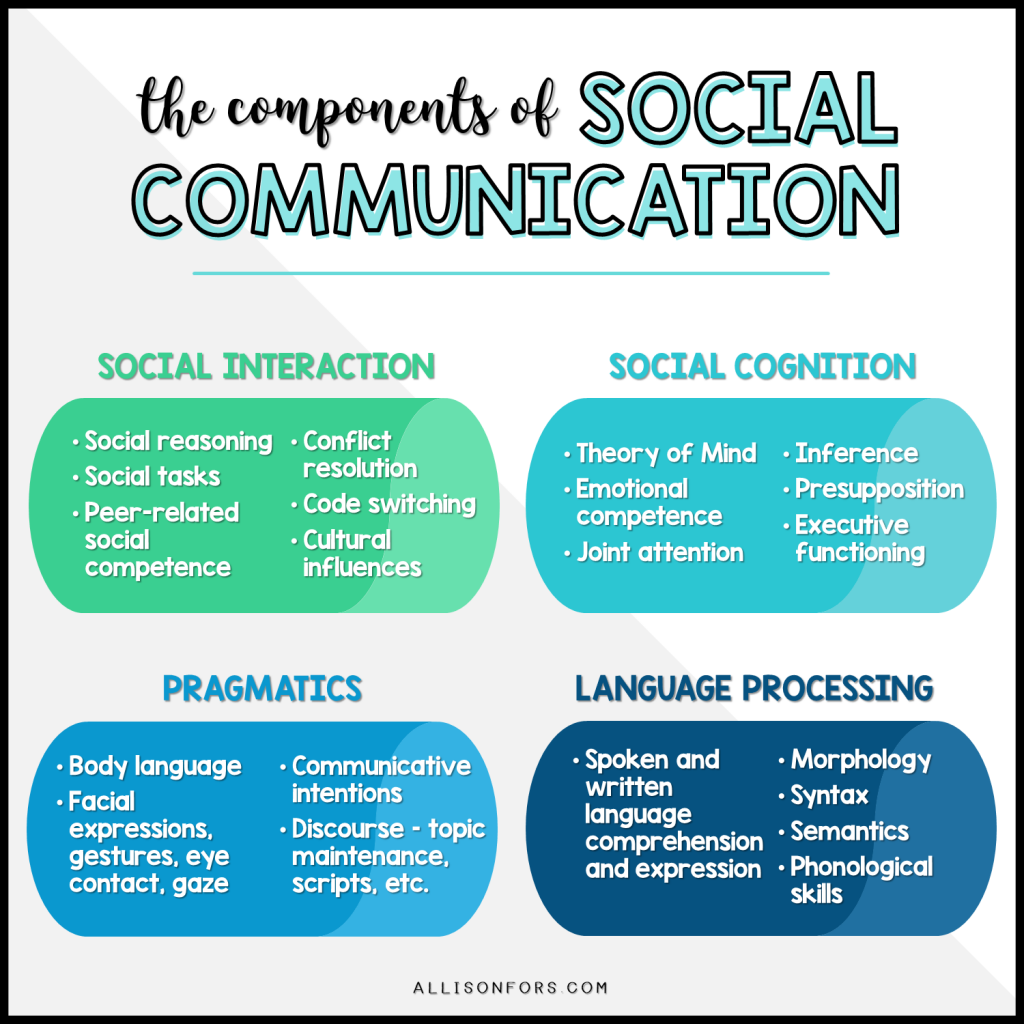
This infographic is available for free download. Download it in the speech therapy freebie section!
What are Social Skills?
Social skills is a loose, umbrella term for all aspects of beings able to communicate effectively, clearly, and positively with others in social situations. This may include changing your language depending on who you’re talking to, for example, a child versus an adult or someone who already understands the topic versus someone who needs more basic information. Or it may be picking up cues to understand what isn’t explicitly said, taking someone else’s perspective, or following the “rules” of a conversation and storytelling.
Social communication includes social interaction, social cognition, pragmatics, and language processing.
What are Pragmatics?
Pragmatic language refers to the social skills used in daily interactions, in both verbal and nonverbal communication. This includes body language, facial expressions, gestures, communicative intent, and topic maintenance. In short, it means knowing what to say, when to say it, and how to say it:
VERBAL COMMUNICATION
- Speech acts (requests, comments, promises, directives, etc.)
- Communicative intentions (expressing intentions through verbal and nonverbal means)
- Prosody (rhythm, stress & intonation of speech)
- Perlocutionary/illocutionary/locutionary acts
- Grice’s maxims of conversation
- Quantity (be informative, given as much info as needed & not more)
- Quality (be truthful)
- Relation (be relevant)
- Manner (be orderly & clear)
- Discourse
- Style (conversation, expository, narration, etc.)
- Interaction & transaction
- Cohesion & coherence
- Responsiveness & assertiveness
- Topic maintenance (selecting & staying on topic)
- Social reciprocity (turn taking, initiating & responding to bids for interaction)
- Scripts
- Event knowledge
- Co-construction of meaning
- Deictic expressions
- Communication breakdown & repair
- Contingency & adjacency
NONVERBAL COMMUNICATION
- Body language (positioning & posture)
- Gestures
- Facial Expressions
- Eye Contact
- Gaze
- Proxemics (respecting personal space)
Social communication skills are a major part of what we target in speech therapy. With that in mind, I’ve rounded up some helpful links to get you started:
Social Skills Ideas and Activities
Social Skills You Should Be Targeting in Speech Therapy
Games for Developing Social Skills
You may be interested in downloading these free social skills lists!
Do you have any favorite strategies for targeting pragmatic language?
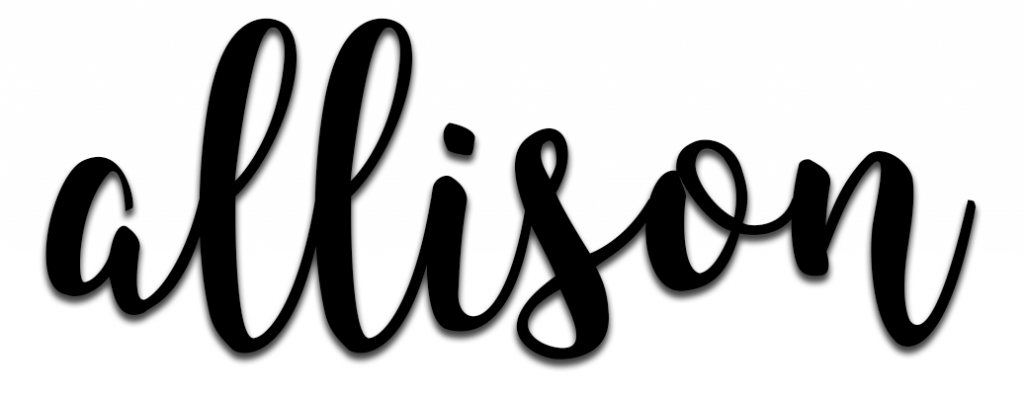
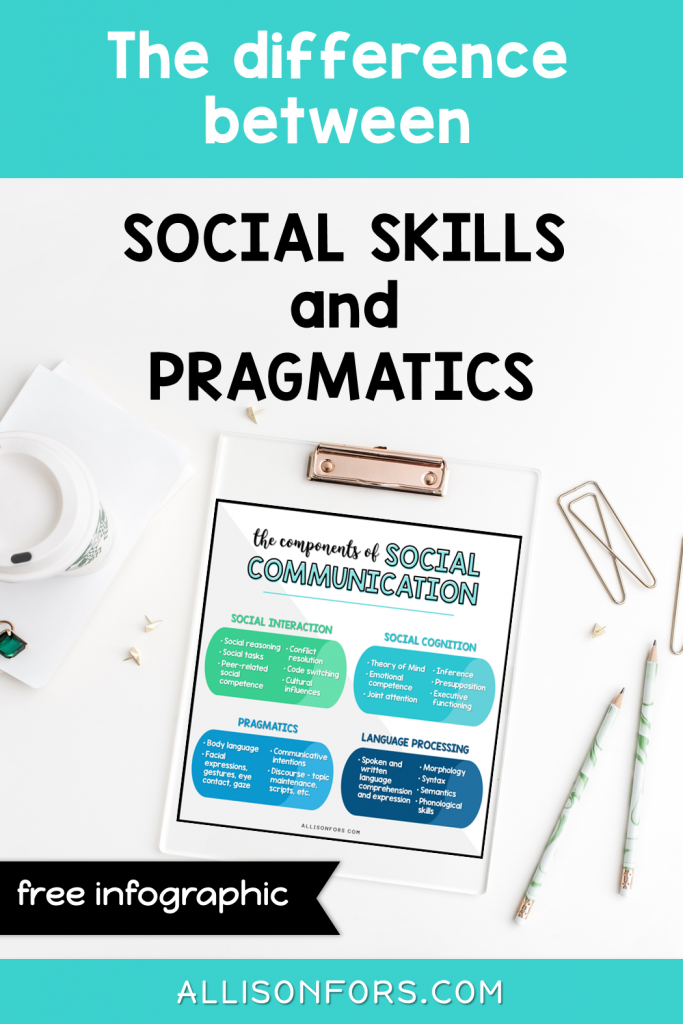


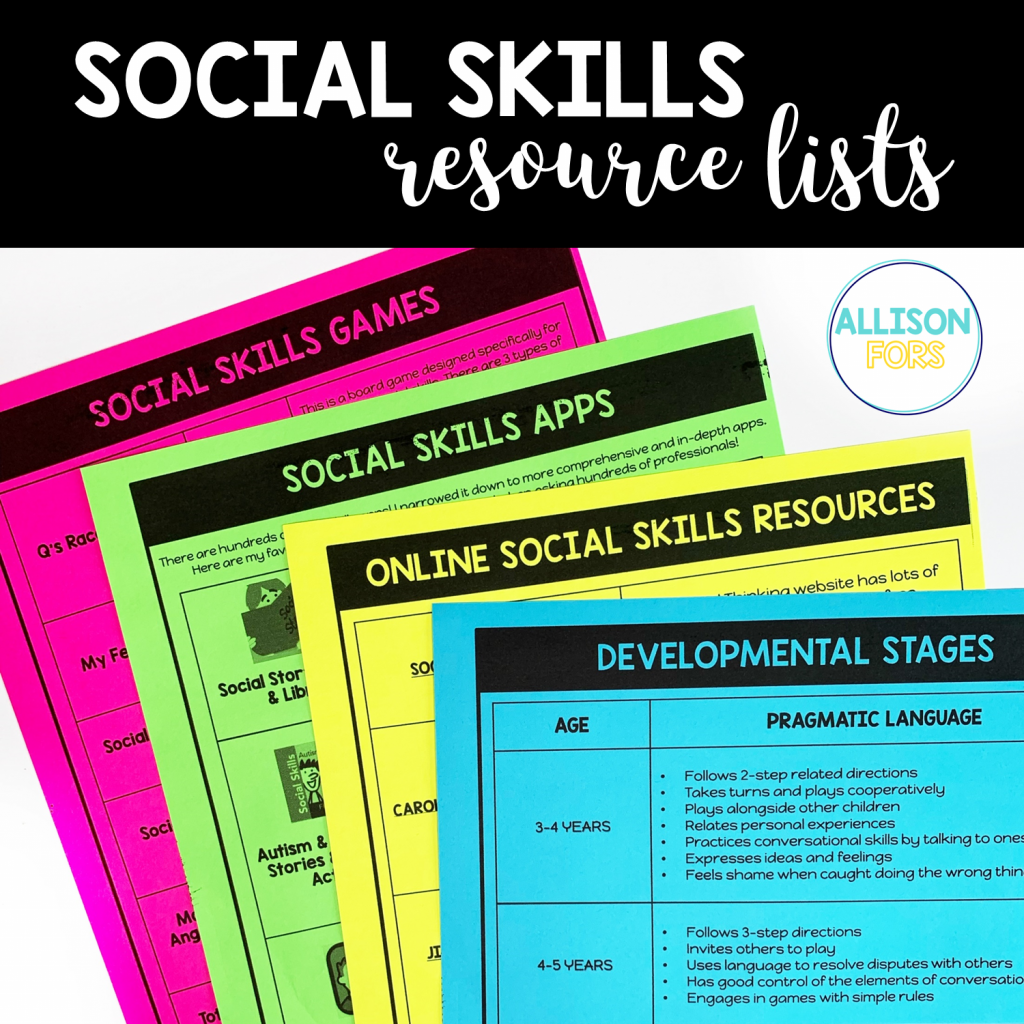
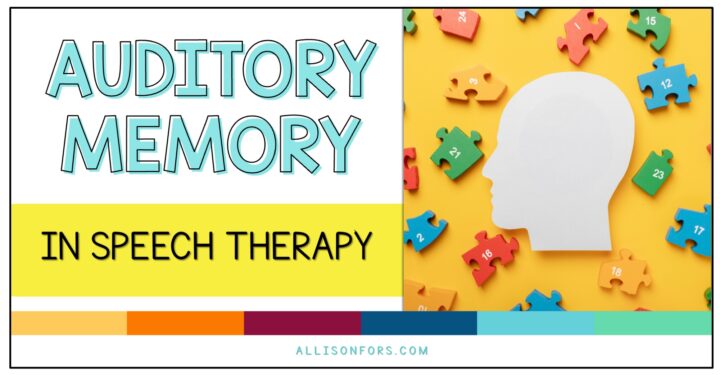
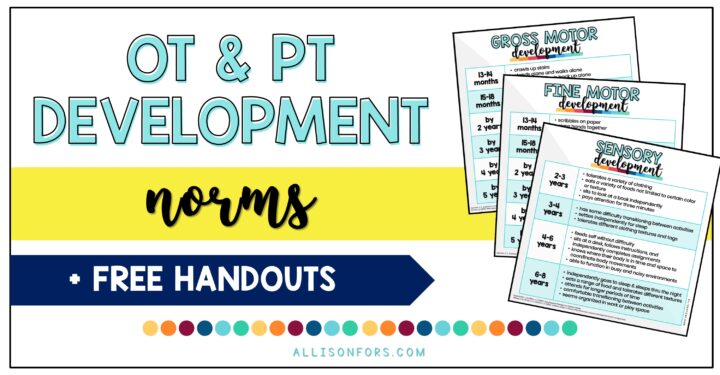
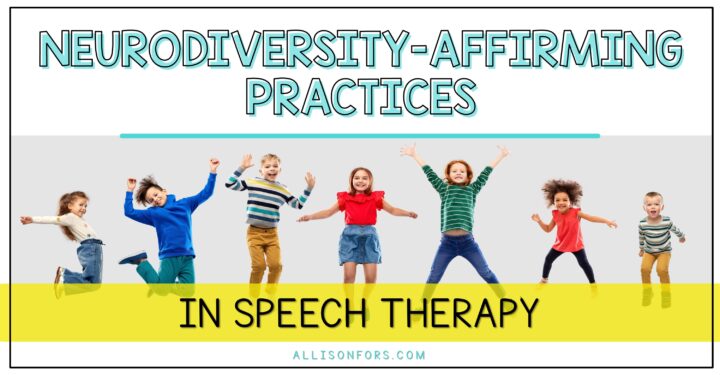

One Response
i like it